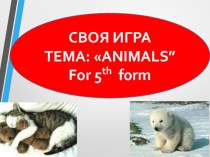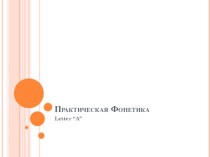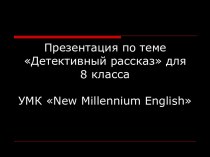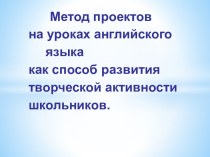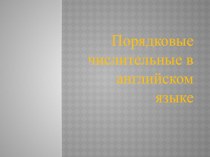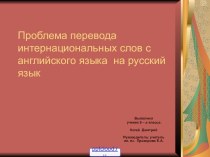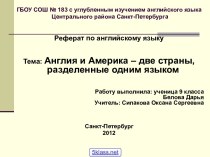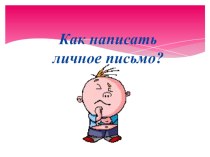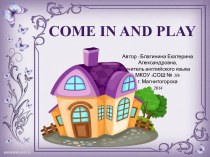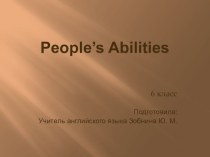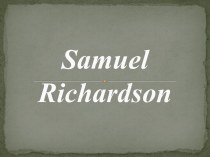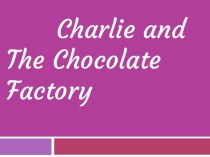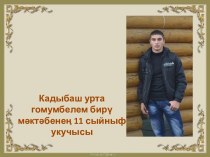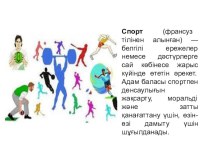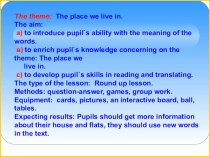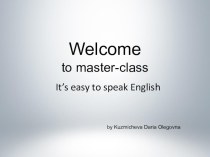- Главная
- Разное
- Бизнес и предпринимательство
- Образование
- Развлечения
- Государство
- Спорт
- Графика
- Культурология
- Еда и кулинария
- Лингвистика
- Религиоведение
- Черчение
- Физкультура
- ИЗО
- Психология
- Социология
- Английский язык
- Астрономия
- Алгебра
- Биология
- География
- Геометрия
- Детские презентации
- Информатика
- История
- Литература
- Маркетинг
- Математика
- Медицина
- Менеджмент
- Музыка
- МХК
- Немецкий язык
- ОБЖ
- Обществознание
- Окружающий мир
- Педагогика
- Русский язык
- Технология
- Физика
- Философия
- Химия
- Шаблоны, картинки для презентаций
- Экология
- Экономика
- Юриспруденция
Что такое findslide.org?
FindSlide.org - это сайт презентаций, докладов, шаблонов в формате PowerPoint.
Обратная связь
Email: Нажмите что бы посмотреть
Презентация на тему Роль речевых клише в коммуникативных ситуациях
Содержание
- 2. The topicality is the lack of an
- 3. The object → speech clichesThe subject →
- 4. The purpose is to study the role
- 5. Sh. BallyR. de GurmonE. PartridgeF.J. BosterV.N. YartsevaN.N. IvankinaT.S. LarinaV.G. Kostomarov
- 6. MethodsAnalysis:All scientific methods of systematization, categorization, observasion and classification of the materialanalyticcognitivetextual
- 7. The scientific novelty of the work consists
- 8. T.M. Dridze → speech cliché↓any ready-made speech
- 9. Models of formation:- semantic: “You kill me”→
- 10. English: One morning, he woke up
- 11. Cliché:has a special status in the language
- 13. Скачать презентацию
- 14. Похожие презентации
The topicality is the lack of an unambiguous understanding of the status of cliches in linguistics
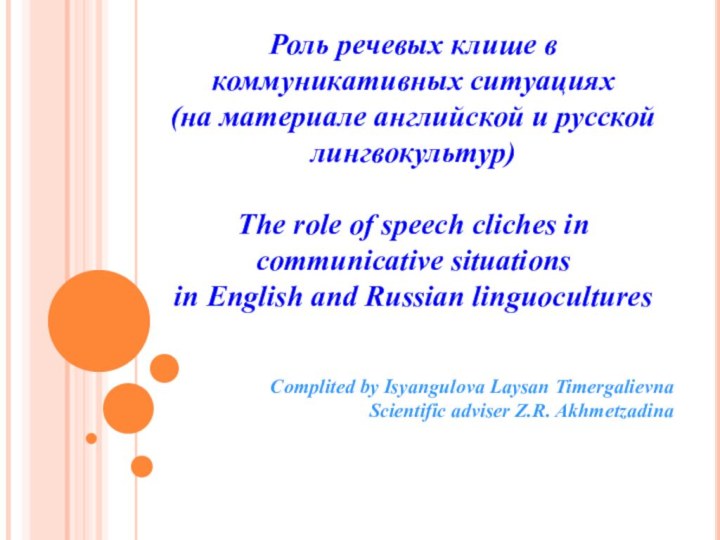

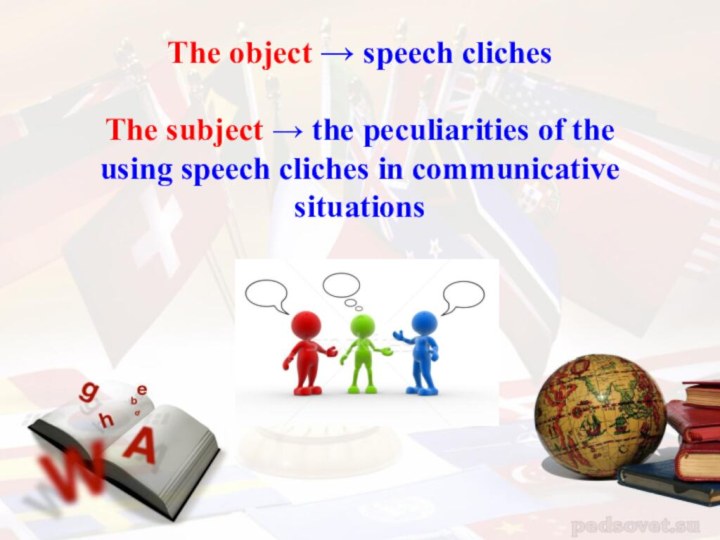
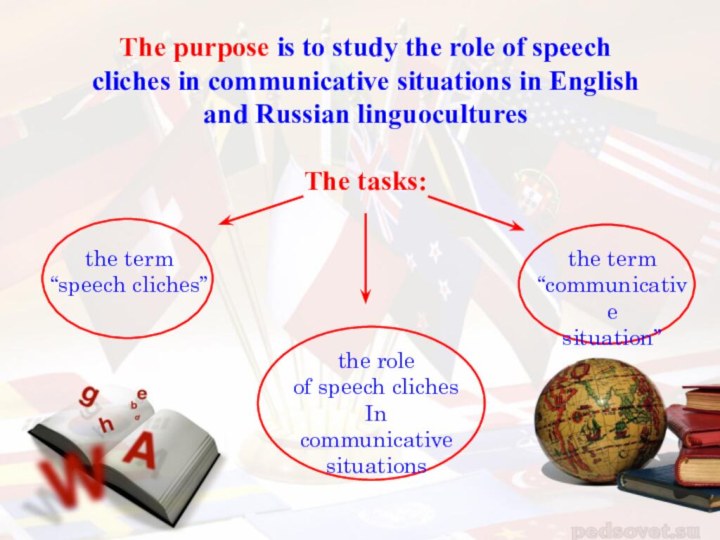
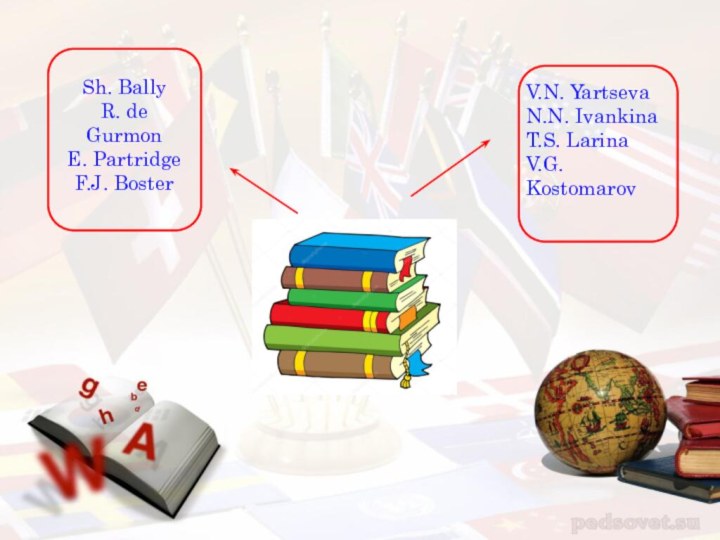
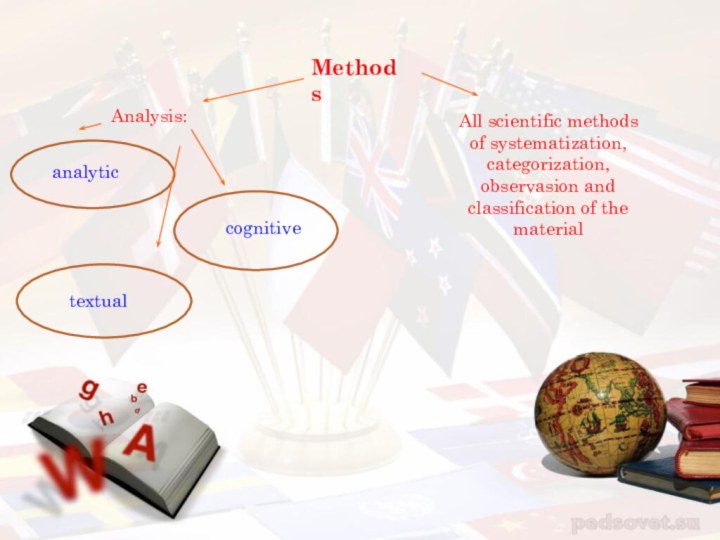
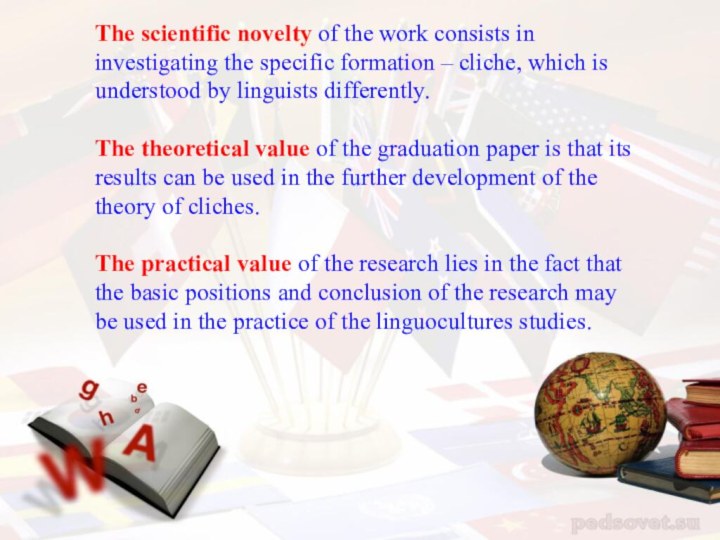
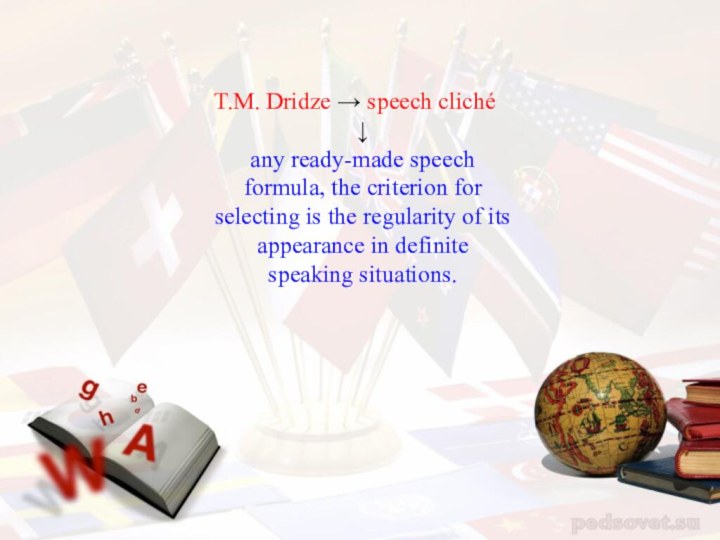
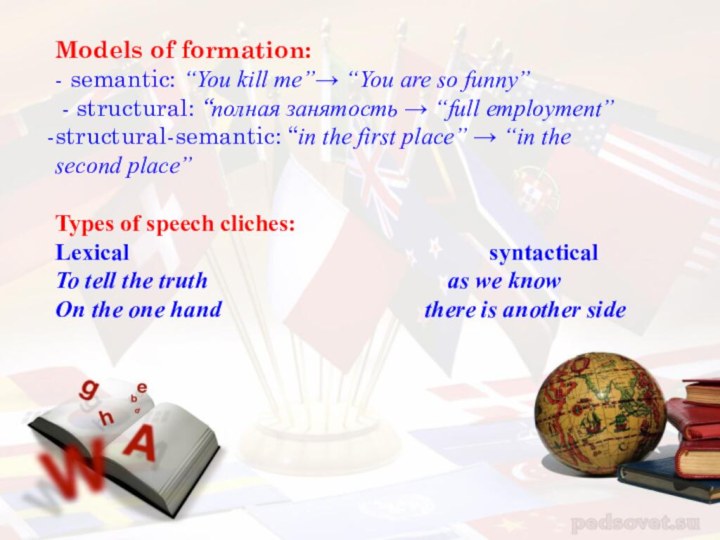
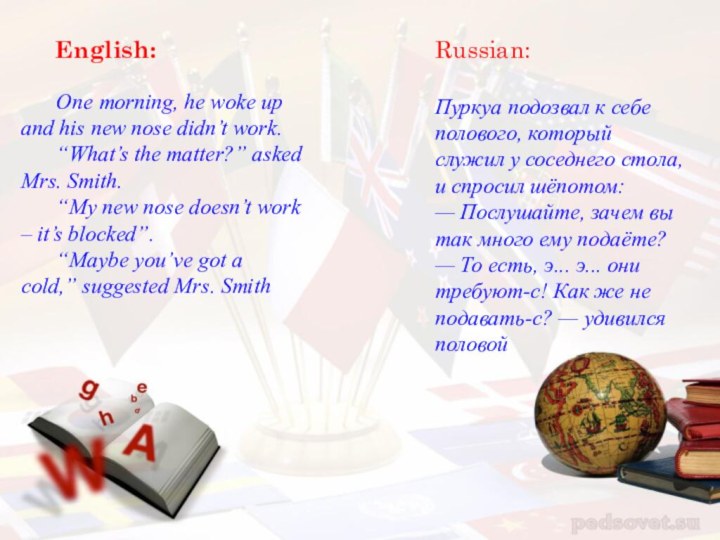
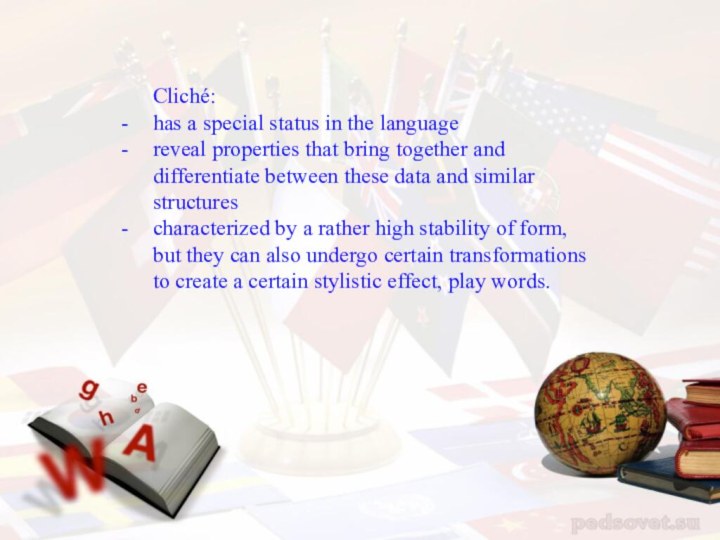

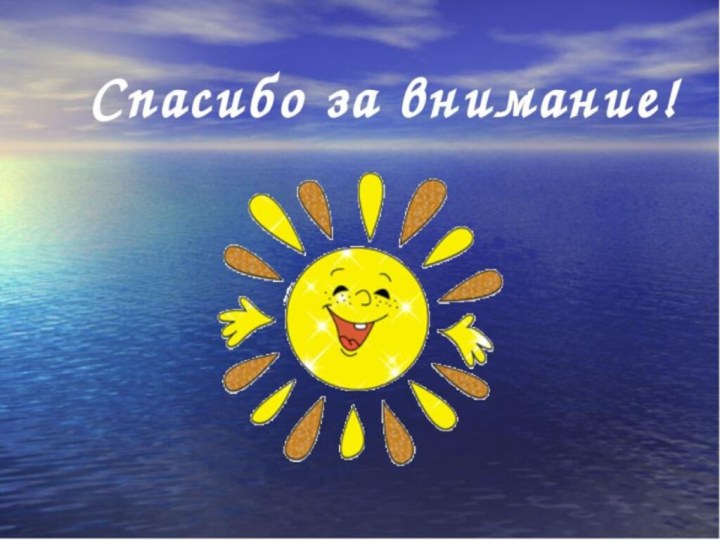
Слайд 2 The topicality is the lack of an unambiguous
understanding of the status of cliches in linguistics
Слайд 3
The object → speech cliches
The subject → the
peculiarities of the
using speech cliches in communicative situationsСлайд 4 The purpose is to study the role of
speech cliches in communicative situations in English and Russian
linguoculturesThe tasks:
the term
“speech cliches”
the role
of speech cliches
In communicative
situations
the term
“communicative
situation”
Слайд 5
Sh. Bally
R. de Gurmon
E. Partridge
F.J. Boster
V.N. Yartseva
N.N. Ivankina
T.S.
Larina
V.G. Kostomarov
Слайд 6
Methods
Analysis:
All scientific methods of systematization, categorization, observasion and
classification of the material
analytic
cognitive
textual
Слайд 7 The scientific novelty of the work consists in
investigating the specific formation – cliche, which is understood
by linguists differently.The theoretical value of the graduation paper is that its results can be used in the further development of the theory of cliches.
The practical value of the research lies in the fact that the basic positions and conclusion of the research may be used in the practice of the linguocultures studies.
Слайд 8
T.M. Dridze → speech cliché
↓
any ready-made speech formula,
the criterion for selecting is the regularity of its
appearance in definite speaking situations.
Слайд 9
Models of formation:
- semantic: “You kill me”→ “You
are so funny”
- structural: “полная занятость → “full
employment”structural-semantic: “in the first place” → “in the second place”
Types of speech cliches:
Lexical syntactical
To tell the truth as we know
On the one hand there is another side
Слайд 10
English:
One morning, he woke up
and his new nose didn’t work.
“What’s the matter?” asked
Mrs. Smith.“My new nose doesn’t work – it’s blocked”.
“Maybe you’ve got a cold,” suggested Mrs. Smith
Russian:
Пуркуа подозвал к себе полового, который служил у соседнего стола, и спросил шёпотом:
— Послушайте, зачем вы так много ему подаёте?
— То есть, э... э... они требуют-с! Как же не подавать-с? — удивился половой
Слайд 11
Cliché:
has a special status in the language
reveal
properties that bring together and differentiate between these data
and similar structurescharacterized by a rather high stability of form, but they can also undergo certain transformations to create a certain stylistic effect, play words.
